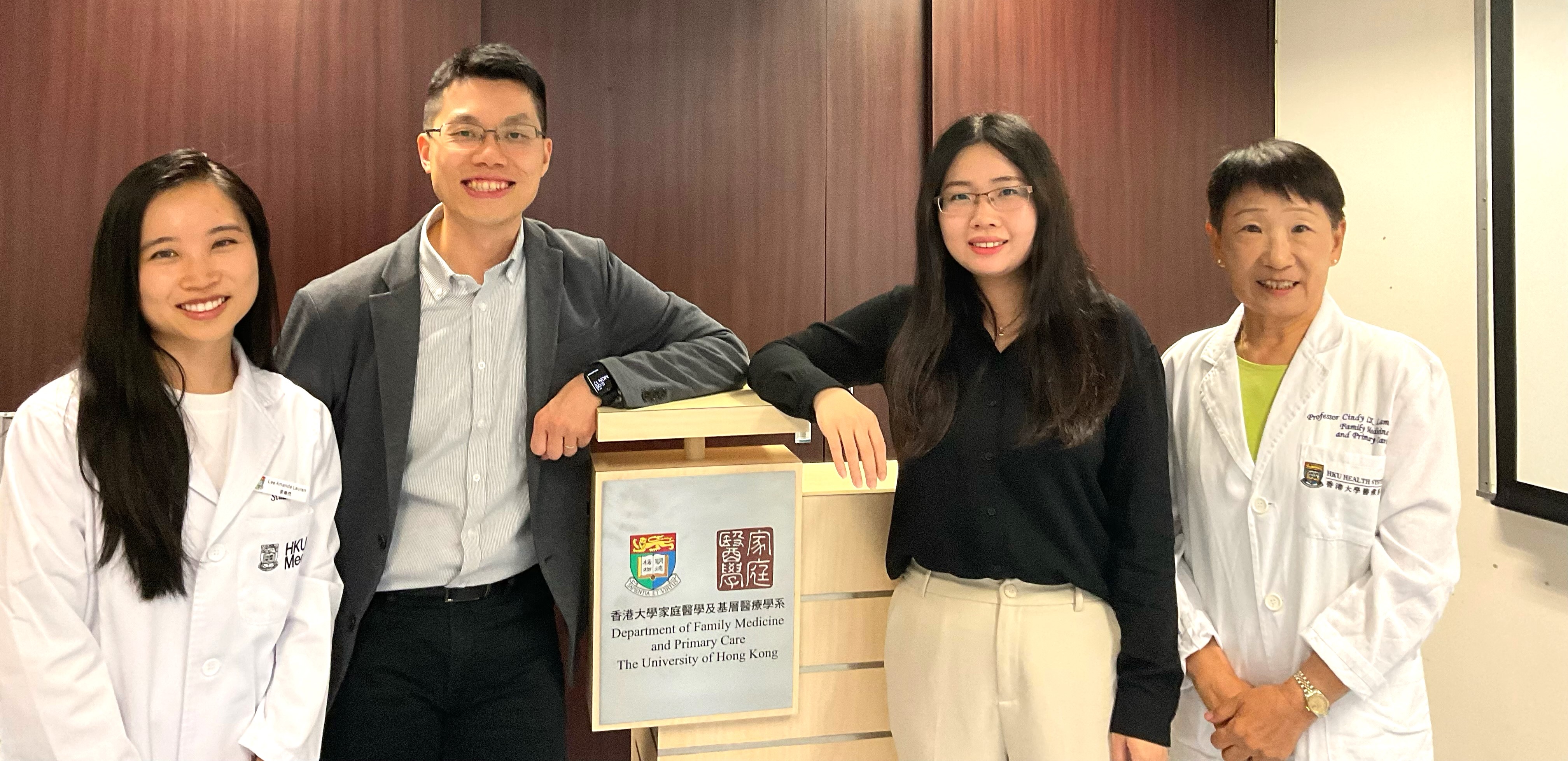25 June 2024
Researchers from the LKS Faculty of Medicine of the University of Hong Kong (HKUMed) and the Harvard TH Chan School of Public Health have provided the first comprehensive evidence of the benefits of statin use in elderly patients, addressing longstanding uncertainties. The robust evidence demonstrated that continuous statin therapy resulted in a substantial relative risk reduction in cardiovascular diseases (CVDs) of 21% for those aged 75–84 and 35% for those aged 85 or above, without any heightened safety concerns.
The pioneering study marks a significant milestone, as it provides powerful real-world evidence on statin use in the elderly population using advanced analytical methods. The findings were published in the highly prestigious journal, Annals of Internal Medicine [link to the publication].
Background
CVD is a leading healthcare burden globally, particularly in ageing populations. Effective management of high cholesterol is a crucial intervention in the prevention of CVDs. According to the latest ‘Population Health Survey’ in Hong Kong, 65.6% of individuals aged 65–84 have high cholestero [1]. While statins have been used for decades to improve lipid profiles and reduce the risk of CVDs, there is little consensus on the use of statins for primary prevention in patients aged 75 or above in the existing international clinical guidelines. The uncertainty of statin use for this population is due in part to the underrepresentation of the elderly population in randomised controlled trials (RCTs), leaving this important clinical question unresolved in real-world practice. This study used real-world data to quantify the long-term benefits and risks associated with statin therapy in primary prevention among older adults to inform decision-making on statin initiation in this large and growing population.
Research methods and findings
The research team, led by Professor Eric Wan Yuk-fai from the Department of Family Medicine and Primary Care under the School of Clinical Medicine, and the Department of Pharmacology and Pharmacy of HKUMed, analysed the public electronic medical records from the Hospital Authority from January 2008 to December 2018 of over 80,000 older individuals in Hong Kong who had suboptimal lipid levels and high-risk conditions, such as diabetes or other risk factors for CVDs. The study investigated the relationship between statin therapy and the risk of CVD incidence in this population with a novel analytical approach known as target trial emulation. The method incorporated the key features of RCTs in the study design for observational studies, substantially reducing the bias typically associated with traditional observational studies.
The findings indicate that the continual use of statins was linked to a 21% reduction in relative risk and an absolute risk reduction of 5% over five years in CVDs among people aged 75–84. The relative risk reduction was an even more substantial 35%, and the absolute risk reduction after five years was 12.5% in those aged 85 or above. The study also found no increased risk of major adverse events, including liver dysfunction or myopathies, identified with statin use in this population.
Significance of the study
The study confirmed the benefits and safety of statin use for primary prevention of CVDs in the older population, which suggests that advanced age should not be a discriminatory factor for high-risk patients regarding the benefits of statin therapy. Considering the increasing burden related to CVDs in the ageing population globally, this study provides significant evidence to support the prescription of statin therapy for the primary prevention of CVDs in this vulnerable population.
‘These findings have significant implications for informing clinical decisions regarding the initiation of statin therapy for this increasingly large population group,’ said Professor Cindy Lam Lo-kuen, Danny D B Ho Professor in Family Medicine, Department of Family Medicine and Primary Care, School of Clinical Medicine, HKUMed. ‘This study also pioneered a new research method to explore many more important but unanswered clinical questions related to the care of the elderly in real-world practice.’
The successful application of target trial emulation to answer this research question also sheds light on future research in geriatric medicine. ‘The older population, especially very old adults, are generally underrepresented in the RCTs, leading to a lack of high-quality evidence on treatment for this specific population group,’ emphasised Professor Eric Wan Yuk-fai. ‘The innovative approach adopted in this study has the potential to generate high-quality evidence in the field of geriatric medicine, thereby advancing our understanding and improving healthcare outcomes for older populations.’
About the research team
The collaborative research was led by Professor Eric Wan Yuk-fai, Assistant Professor and Chief of Research in the Department of Family Medicine and Primary Care, School of Clinical Medicine, and Department of Pharmacology and Pharmacy, HKUMed. Research team members included Professor Cindy Lam Lo-kuen, Danny D B Ho Professor in Family Medicine; Wendy Xu Wanchun, PhD student, Department of Family Medicine and Primary Care, School of Clinical Medicine, HKUMed; Amanda Lauren Lee, MBBS student, HKUMed; and Professor Goodarz Danaei, Bernard Lown Professor of Cardiovascular Health, Department of Global Health and Population, Harvard TH Chan School of Public Health.
Acknowledgements
The study was supported by the Health and Medical Research Fund, Health Bureau, the Government of Hong Kong Special Administrative Region; and the National Natural Science Foundation of China Excellent Young Scientists Fund (Hong Kong and Macau).
[1] Report of Population Health Survey 2020-22 (Part II): Non-Communicable Disease Branch, Centre for Health Protection, Department of Health; 2023 [updated 2023; cited 2024 12 January]. Available from:
https://www.chp.gov.hk/files/pdf/dh_phs_2020-22_part_2_report_eng_rectified.pdf
Media enquiries
Please contact LKS Faculty of Medicine of The University of Hong Kong by email (medmedia@hku.hk).


Follow HKUMed